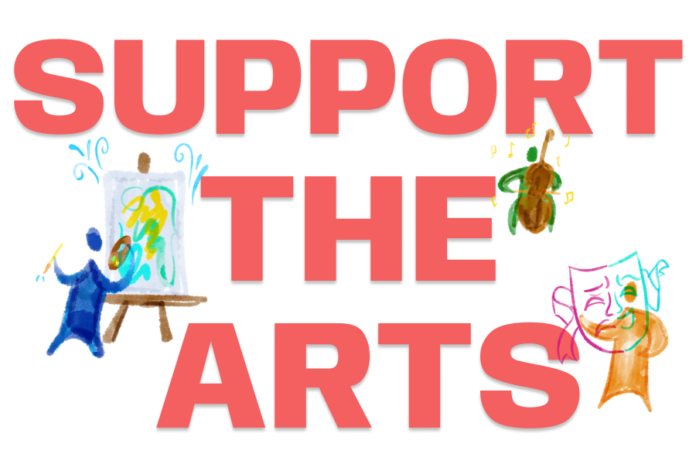Students and faculty speak about the importance of these departments on campus
By ADHITHI ANJALI — arts@theaggie.org
UC Davis is well reputed as a research university, most known for its position as an environmental powerhouse among universities nationwide. However, how does such prestige factor into the wellbeing of non-STEM programs on campus?
Andrew Haley, a fourth-year classical studies and evolutionary anthropology double major, heads the Classics Students Association and offers a unique perspective through his experience in science- and culture-oriented courses.
“The general sense that I get is that the university sees the Classics Department as a chance for non-majors to fulfill their GE humanities requirement,“ Haley said on the immediate differences between major courses.
Having to balance an appropriate number of GE courses and in-depth, specialized courses is a tension that Haley saw frequently in his classic studies. “I think anthropology, though still a small major, gets a little bit more room for specialized courses designed for majors,” Haley said.
Haley relates the lack of diversity and depth of courses in the humanities to a lack of funding and, subsequently, professors.
“To be honest, I think the future of humanities at Davis is uncertain. There’s been a trend with humanities departments at various institutions where, when someone retires, that position doesn’t get replaced,” Haley stated. He expressed concern about the fact that these job openings tend to get filled by lecturers, worried that “generally, [lecturers] get less benefits from the university [than professors], less job security, and doing research is not considered part of their employment.”
Funding at the university level has become an evident problem in the lives of all scholars. Dominique Paz, who graduated from UC Davis with a degree in classical civilizations with an emphasis on languages, now works as a teaching assistant. Having transitioned into the working world, Paz underscores the difficulty of finding work as a result of the lack of structure from the university.
“We’ve come across this issue where large companies and governments have funded STEM studies, which allowed more jobs and opportunities in those fields, but left the humanities in the dirt,” said Paz. “In some cases, even, [funding has been] cut, like in California.”
Dr. Tiffany Jo Werth, an associate professor within the Department of English and recently appointed director of the Medieval and Early Modern Studies program (MEMS), calls this the “self-fulfilling prophecy” of the humanities.
Werth mentioned the lack of a “robust culture of supporting the humanities in the United States,” which she experienced during her work in the Simon Fraser University in Vancouver, British Columbia. She expressed a desire to find more funding to work and research with undergraduates.
“We used to have matching grants in Canada for undergraduate funding so it was quite easy to hire and work with undergraduates,” Werth said.
Working as the director of MEMS, Werth noted how the issue expands from the top-down. The lack of funding for research performed by the faculty limits their ability to work with undergraduates. Following this absence of professional academic opportunity, graduates of the humanities find themselves lacking in connection and direction.
“I think that is the main bridge that many star-eyed academics are lacking,” said Paz, speaking about the seeming dearth of entry-level jobs. “Many Ph.D. [holders] get their degrees then are like ‘What now?’ because their field is so niche.”
The unstable eye of the university on the humanities has fostered this larger sense of inopportunity, with funding being the largest concern for all levels of scholarship.
Dr. Keith Watenpaugh, current professor and founding director of the Human Rights Studies program at UC Davis, wants to see a movement from the university to “redouble its commitment to global education and embrace it as a core principle.”
“The modern American research university is really beholden to industry, grants and money,” said Watenpaugh. The perception that humanities are unwelcome or useless in a modern economy drives the flow of money within all universities, not just UC Davis.
Watenpaugh heads Article 26 Backpack, which he believes to be the largest undergraduate humanities internship on campus with around 16 to 24 students. It is built upon the core principle that there is a human right to education and culture as the product of both the arts and sciences.
Of grant-funding programs connected to UC Davis that specifically focus on the humanities, the University of California Humanities Research Institute (UCHRI) and the UC Davis Humanities Institute (DHI) are the most prominent on campus, but still lack larger recognition from the student body.
“I would love to see those sorts of programs made more robust so we could have more centralized places of information,” Werth said.
Looking towards the future of humanities programs, Werth sees potential in UC Davis as an exciting place for collaboration between STEM and the arts. Werth has worked across disciplines, having been able to organize a symposium at the UC Davis Coastal and Marine Sciences Institute at Bodega Bay Marine Laboratory, so she understands the potential for collaboration on a personal level.
Similarly, Dr. Watenpaugh wants to shift the narrative of the humanities and sciences towards being parts of a whole, and said that “we tend to envision the campus as divided — the people in authority on campus need to see how they are equal parts of the human experience.”
A lack of centralization across the humanities is a common theme from these testimonies, as well as a desire to see more structure in fostering and supporting a community of scholars in arts and culture.
This may come in the form of more exposure and advertisement that draws students from all departments to the humanities. Taking notice of the vibrancy and need of the community, despite how small it may seem, can be the first step in recognizing the true desire on campus for undergraduate research and participation.
Written by: Adhithi Anjali — arts@theaggie.org




